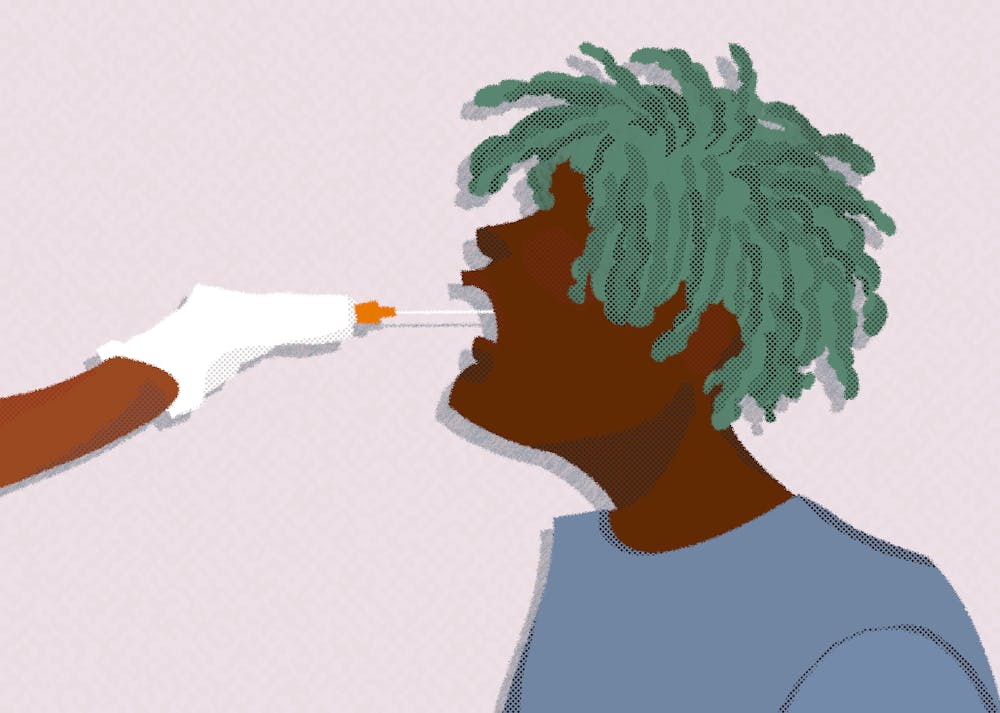The University has yet to run out of supplies to support testing development programs and the distribution of personal protective equipment.
While states and institutions across the country are trying to obtain the same products, supply chain managers at the University have a specific approach to make sure they have what they need to test ASU community members for the coronavirus and ensure they had all of the necessary PPE for the semester.
Jamon Hill, the University's executive director of supply chain, said in contrast with previous years, where most of the focus was on janitorial materials, Hill added health care supplies to his list of concerns.
"We have Student Health Services, which we support, but it's not a major volume of stuff," Hill said. "It was really expanding our knowledge and our relationships with vendors in the health care space, which we didn't do before."
Hill said when COVID-19 first appeared on ASU’s campus in January, his team used established relationships with major suppliers the University was already using in campus labs to determine who would be able to provide enough PPE.
"It was a lot of noise," Hill said. "We couldn't really figure out who the players really were, who had actual approved products and who didn't."
Once the Centers for Disease Control and Prevention had developed guidelines, Hill said he was able to make decisions about his next steps.
Hill's team and other University leadership, which he internally called a "task force," sent emails and cold called around 800 suppliers. With responses from just under 100 vendors, the task force then vetted suppliers and decided which companies would be best. Every student received a Community of Care kit early in the semester that included two masks, hand sanitizer, wipes and a thermometer.
"All of the suppliers for the Community of Care kits are suppliers we had never used before, and some of them were vendors who did other things before COVID too," Hill said, many of which were local and women-owned businesses that "really expanded our breadth of who we use."
Amanda Wigal-Schlosser, a 2003 ASU marketing graduate and the president at Brandables, said the keyword for business this year was "pivot." Brandables, a company that helps create and supply promotional products, worked to put together Community of Care kits.
Brandables has increased its fulfillment of orders since the start of the pandemic because of an elimination of in-person events to attend and host. Wigal-Schlosser said March and April created "downtime that allowed us and many other businesses to rethink what we're doing."
Working with ASU in the summer put Brandables "in a position to realize that (personal care packages) was something that we needed to really focus on to make it through, survive and do well through the pandemic," Wigal-Schlosser said.
Putting together Community of Care kits was the first time Brandables worked with a higher education customer, and now the company works to create care packages for individuals, usually contracted by a larger company or the individual's employer.
"It was really great to work with my alma mater," Wigal-Schlosser said, adding the company is now in a busy holiday rush "focusing on all of our customers," not indicating specifically whether the company would be working with other higher education institutions in the future.
Testing development supply procurement
ASU's Biodesign Institute developed a saliva test made widely available for free for students and employees, which required a steady stream of supplies like test tubes and gloves to ensure they could test thousands of people each week.
Joshua LaBaer, the executive director of ASU's Biodesign Institute and one of the University's testing and COVID-19 response team leaders, said one of the first people the testing team acquired was someone dedicated to procuring supplies.
"One strategy that our group has taken is to particularly choose a type of test and a type of approach that uses either things that are extremely common or things that no other testing lab is particularly interested in," LaBaer said.
Joseph Miceli, who works with LaBaer in the Virginia G. Piper Center for Personalized Diagnostics within the Biodesign Institute running a DNA repository which requires supply procurement, has some experience "making sure things arrive in the right place at the right time," he said.
Miceli said the Biodesign Institute assessed in February what it had, what it needed to order and what was needed as soon as possible. Miceli spent a few days at Mayo Clinic, scoping out their drive-up sampling site and configuring how the University could replicate something like it but on a larger scale.
"It is absolutely true that a lot of testing labs are out there and trying to get supplies, and that's always going to be an issue," LaBaer said. "It is also true that the world at large now recognizes the importance of maintaining supplies."
Miceli said the University has a "willingness to think outside of the box and consider all of the options.
"I think one of ASU's big, big strengths for all of this is flexibility."
Reach the reporter at pjhanse1@asu.edu and follow @piperjhansen on Twitter.
Like The State Press on Facebook and follow @statepress on Twitter.

Piper Hansen is the digital editor-in-chief at The State Press, overseeing all digital content. Joining SP in Spring 2020, she has covered student government, housing and COVID-19. She has previously written about state politics for The Arizona Republic and the Arizona Capitol Times and covers social justice for Cronkite News.




